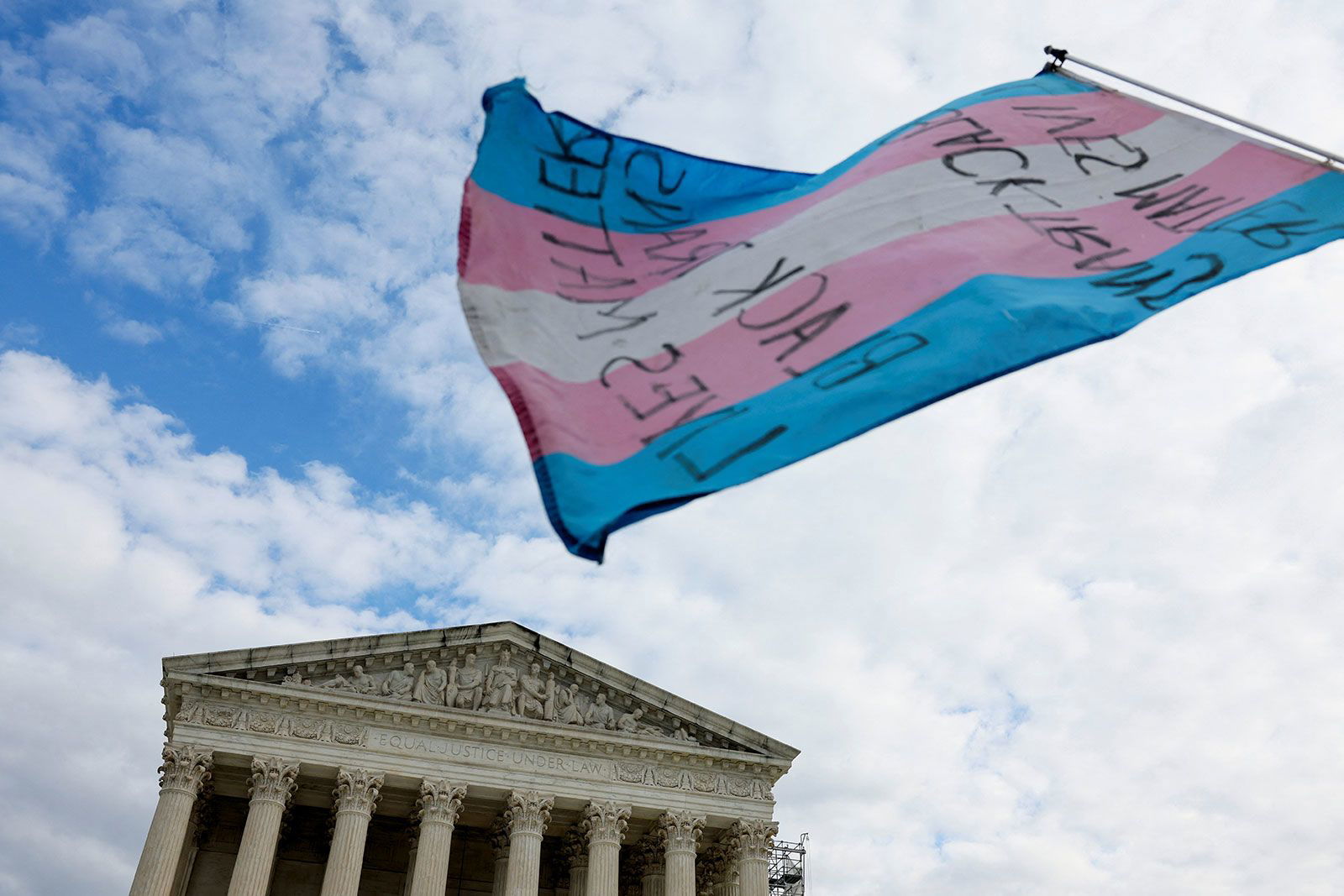Supreme Court declines request from South Carolina to let it enforce trans bathroom ban

A transgender flag waves outside the US Supreme Court in Washington
By John Fritze, CNN
(CNN) — The Supreme Court on Wednesday declined for now to let South Carolina enforce a ban on transgender students using school bathrooms that align with their gender identity.
The court denied an emergency request from the state that sought to block a decision from a federal appeals court that barred school officials in a district outside of Charleston from enforcing the ban against a transgender boy who was suspended from school for using the boys’ bathroom.
Three conservative justices – Clarence Thomas, Samuel Alito and Neil Gorsuch – said they would have granted South Carolina’s request.
The court stressed in its unsigned order that the decision was “not a ruling on the merits of the legal issues presented in the litigation.” Rather, the court said, “it is based on the standards applicable for obtaining emergency relief from this court.”
The court’s brief order dealt only with what happens with the student in the short term while the case continues to work its way through federal courts.
It was the latest of several legal cases involving LGBTQ Americans to work its way up to the high court during a moment when transgender Americans are facing political and cultural setbacks. Earlier this year, for instance, a divided Supreme Court allowed President Donald Trump’s administration to enforce a ban on transgender service members in the military.
Four years ago, the Supreme Court let stand a decision from the 4th US Circuit Court of Appeals that allowed a transgender student named Gavin Grimm to use a bathroom that corresponded to his gender identity. Though the court’s decision to not hear that case did not set nationwide precedent, the Grimm ruling remains controlling precedent in the 4th Circuit – which covers South Carolina.
In the new appeal, South Carolina officials pointed to the Supreme Court’s high-profile opinion in late June that let stand a Tennessee law that banned puberty blockers and hormone therapy for minors seeking to transition to match their gender identity. They also noted that the high court agreed this summer to decide whether states may ban transgender students from playing on sports teams that align with their gender identity.
The state argued that those two moves had undermined the outcome in Grimm.
The South Carolina legislature approved the bathroom ban in a series of budget bills, requiring that single-sex school bathrooms be used only by students of that sex assigned at birth.
A student identified in court papers as John Doe, who was in eighth grade when the ban was first enacted, sued along with his parents, alleging that the provision violated federal law and the Constitution’s equal protection clause. After the Supreme Court agreed to hear the transgender sports case, a federal district court put the bathroom litigation on hold.
On appeal, the 4th Circuit unanimously sided with the student and his family, blocking the ban’s enforcement against him.
The-CNN-Wire
™ & © 2025 Cable News Network, Inc., a Warner Bros. Discovery Company. All rights reserved.



